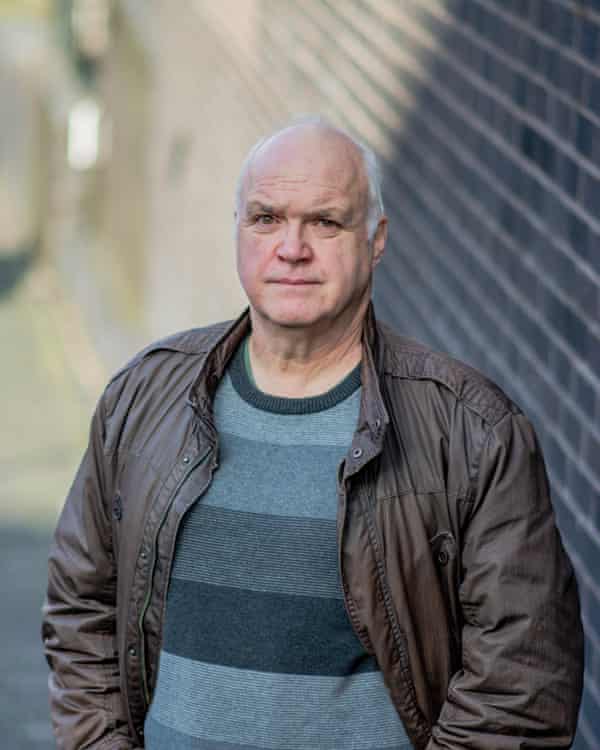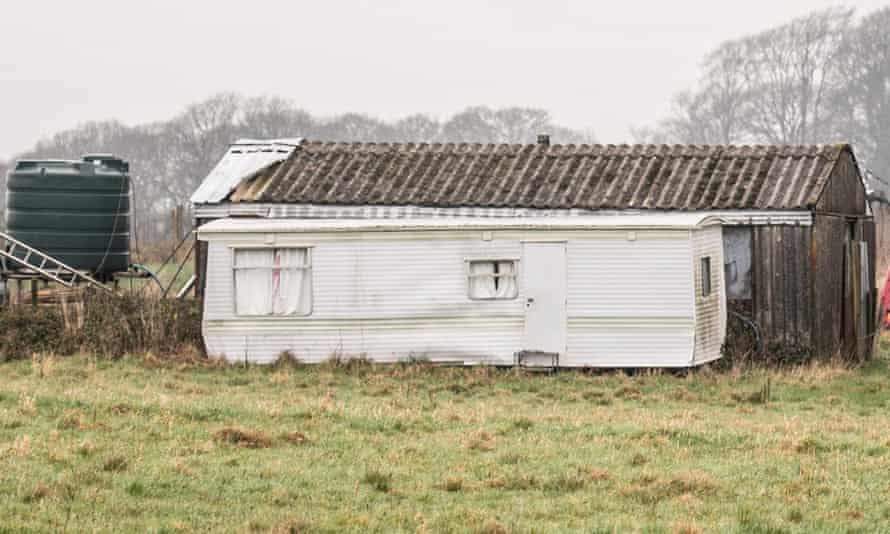When characters in The Archers discuss feeding their horses, you assume they are talking about taking hay out to their livestock, so it is perplexing to discover that these “horses” thrive on pizza, cigarettes and beer.
The more casual listener might have formed the impression that divorced builder Philip Moss was a mild-mannered, middle-aged birdwatcher who never says anything interesting. It has been startling to learn that he is in fact an evil gangmaster. Over the past year, Philip has acquired three slaves, who have been working unpaid on his construction projects. In muttered conversations with his son, he refers to them as “horses”, talking approvingly about one who is placid and easy to manage, and praising another who is strong as an ox.
The speed of Philip’s transformation from a boringly reliable benign figure, mostly known for his love of extravagant Christmas lights, into a hardened, modern-day slaver who speaks in a dehumanising way about his workers has slightly stretched credibility. But the programme’s writers hope that the plot will force its 5 million listeners to examine their own fondness for suspiciously cheap products and cut-price labour.
The slaves are British men in their 20s who were living on the streets and who have various vulnerabilities. One is barely able to read or write and appears to have learning disabilities, while another has spent time in care. Philip seems able to convince himself that, since he is housing them and providing them with limited access to food and the occasional use of a PlayStation, the wage-free arrangement is justifiable. When he decides the men are becoming a liability, he sells them to another slaver, well-spoken Victoria, who drives an expensive fast car. They negotiate over the pedigree of the “horses”, before Victoria offers to pay just GBP20 for one of them, because he is damaged goods after a workplace accident.

The decision to make these unpaid workers British, rather than eastern European or south Asian labourers, feels curious. Exploitation of modern-day slaves frequently relies on the victims speaking poor English and knowing that they do not have the correct documentation to be in the UK. They are too frightened to seek help from the police in case this triggers Home Office involvement and deportation. I’ve been left wondering whether this plot twist isn’t somewhat implausible.
Theresa May’s government did a lot to put modern-day slavery on the political agenda, but mostly by highlighting the Home Office’s duty to crack down on people-smuggling. Cynics saw her preoccupation as a way of putting a positive spin on a hostile environment and tighter immigration enforcement. There has been very little discussion of British slaves, beyond the exploitation of young girls in Rotherham and young boys caught up in county lines drug rings.
But The Archers’ editors have been meticulous with their research, and stress that they have presented a less familiar manifestation of modern slavery in order to educate listeners about a little-understood phenomenon. The show’s adviser, Susan Banister, from the modern slavery charity Hope for Justice, says the common perception of modern slavery is narrowly focused on nail bars and car washes – but statistics from the government’s National Referral Mechanism, the body set up to support people rescued from exploitation, show British nationals are most frequently referred to the service, followed by people from Albania and Vietnam.
“People tend to think it’s eastern Europeans or people from south-east Asia being exploited,” says Banister, who hopes the show will encourage people to be more alert to signs of abuse. “I think if we can open people’s eyes, so they respond to a gut feeling that something’s not quite right, it means somebody could be rescued sooner.”
Other organisations are already responding to the plotline. The Gangmasters and Labour Abuse Authority, which oversees England and Wales, has put out a video highlighting signs to look out for. Does the worker’s freedom appear to be restricted? Are they driven to and from the workplace by someone who appears to be restricting their freedom? Are they unwilling to speak? Do they work excessively long hours? Do they have injuries that have not been medically treated? Are there signs they are living in poor, overcrowded accommodation?
The Archers’ editor, Jeremy Howe, had been thinking about including modern slavery as a theme since he started at the beginning of 2018. Accompanying the show’s agricultural adviser to a country fair three years ago, he noticed a huge banner at the entrance erected by the Home Office telling farmers how to recognise signs of modern slavery. He discussed the issue with the Farming Community Network. “They told me it was a significant problem in rural Britain,” he says. “And, because a lot of the countryside is quite remote, it’s incredibly easy for it to go undetected. My view of modern slavery was that it was an urban issue. But actually, it really has seeped into the rural economy.”
The most compelling part of the plotline has been the sudden realisation by many people in the village that they have been complicit. For months, Philip has been offering his neighbours competitive quotes on building work, undercutting rivals. He has been contracted to mend the church, renovate the pub, restore a barn and repair the village playground pro bono. Villagers have been feeling guilty, subsequently, about their failure to question how Philip was able to offer such low prices. No one spoke to the workers, or noticed that they were entirely in the control of Philip and his son.
“If the price of goods or services seem too good to be true, they probably are,” the Gangmasters and Labour Abuse Authority states, in its Archers-inspired awareness drive. “Cheap goods are only possibly because somewhere workers are being exploited.”

Howe says: “The more culpable we could make a lot of people in Ambridge feel seemed to be the way to make the story hit home. That’s how it’s playing out at the moment – everybody feels utterly wretched. People were flocking to him because he was able to undercut everyone else, but you need to think about why. Everyone is asking how they missed it, but the brilliant thing about good villains is they hide in plain sight.”
The Archers has always had a public service tradition. It was hugely successful in educating listeners about coercive control through Rob Titchener’s abusive behaviour towards his wife Helen. Recently, the programme has also tried to inform listeners about sepsis, the power of counselling to help depression, and historical sexual abuse.
Mostly, however, Howe wants the story to work as drama. “I hope we’ve shone a light on something that is a shocking part of the UK, and that our audiences understand better exactly what modern slavery is about. But real success for us is that the story works. If it has an impact outside that, that’s a bonus.”
o The Archers is on Radio 4, weekdays, at 2pm and 7pm, with an omnibus edition on Sundays.